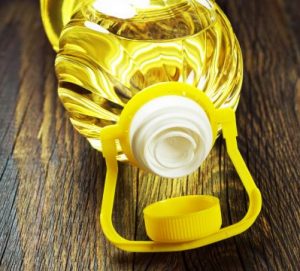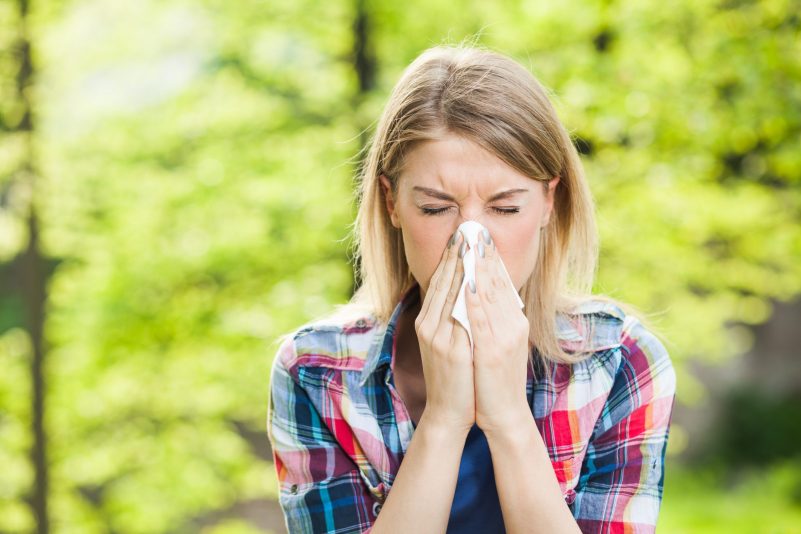This time of year, almost everyone’s hot. But for some women, the hot flashes and night sweats associated with perimenopause and menopause are just too much heat. They disrupt sleep and can make you feel miserable. But, what can you do?
We have some natural help for hot flashes.
Here’s what they are, why women get them, and what you can do starting today.
What are Hot Flashes and Why Might You Need Help for Hot Flashes?
Hot flashes an overheating response by the body that is sudden and exaggerated. The nerve centers in the brain are normally great at keeping internal body temperature within strict limits and have methods for helping our body when they get too hot or cold.
In the case of hot flashes, the brain senses the sudden heat, increases the rate of blood flow to the surface of the skin, causes the skin to redden or flush, and increases the sweat-response. This is one thing when you’re out for a run on a summer day, but quite uncomfortable when you’re trying to sleep.
For women, hot flashes can really impact their lives and affect quality. If it causes a lack of sleep over the years, it can lead to the risk of other health issues such as weight gain, depression, and more.
What Causes Hot Flashes?
Although experts don’t know an absolute sure reason why women experience hot flashes, it’s clear that sex hormones play a role.
Most hot flashes occur in the few years before menopause (premenopause) and during menopause. However, some younger women also report having hot flashes at much earlier ages, typically in the days leading to menstruation.
Many studies have looked at the role estrogen may play with hot flashes.
One animal study found that when estrogen levels are reduced, the nerve centers that regulate body temperatures in the brain actually become deformed and mutated. They actually respond to norma temperatures as if they are too high, causing the sweating and flushing (1).
Other studies have found similar results, that a drop in estrogen may damage nerve centers and the body may respond to normal temperatures with abnormal exaggerating cooling and sudden sweats and flushes (2).
Unfortunately, this means it’s not just about the environmental temperature, but the body’s responses to “regular” temperatures.
How Common Are Hot Flashes?
Natural Lifestyle Help for Hot Flashes
Identify Triggers and Avoid Them
There are common triggers for many women’s hot flashes, and you may be able to identify and avoid your own. These include:
- warm weather (make sure your home/room is cool in the evening an night)
- stress
- spicy or hot foods and beverages
- alcohol
You may find that you don’t need to avoid the trigger entirely, but just reduce it or learn how to mitigate its effects.
Lose Weight is Needed
Obesity and being overweight may actually increase the intensity and frequency of hot flashes. Losing weight before menopause can help. What’s more, many women find it much tougher to lose body fat during and after menopause, so it’s best to go into it at a healthy body weight if possible.
Need help with weight loss. Here’s more info.
Hydrate Well throughout Each Day with Cold Water
Our bodies have an effective way of cooling us off internally, but they require adequate hydration. Starting in the morning and throughout the day, consider drinking ice-cold water. You may also find that a cool or cold shower before bed helps.
What’s more, both of these cold-water habits can help you lose fat!
Stop Smoking if Needed
Smoking may speed up the onset of menopause and increase the severity of symptoms, especially hot flashes.
Keep A Cool Breeze Blowing
Consider carrying a small personal handheld fan and/or adding one to your room. Although environmental factors are completely to blame, controlling some may help you.
Relax with Deep Breathing, Prayer, Gratitude and Exercise
If you notice that stress is a trigger for your hot flashes (stress releases epinephrine, which increases body temperature and sweating), it’s a good idea to find a way to relax quickly. Try taking deep breaths, praying, thinking of 3 gratitudes, or taking a walk.
Diet and Nutrients as Help for Hot Flashes
Nutrients, in particular proteins and fats, help guide healthy hormone and nerve signaling. When going through premenopause or perimenopause, it’s important to eat nutrients that support and balance your hormones and thyroid function. Thyroid hormones, like sex hormones, are affected by menopausal changes.
First, a healthy diet, and healthy body weight, can help. A good diet will help you maintain steady blood sugars while supporting hormone production.
Focus on eating healthy fats and proteins such as:
- Avocados, coconut oil, extra virgin olive oil, and other healthy fats
- High-quality seafood, chicken, and meats
- Fiber-rich vegetables and leafy greens
- Small amounts and berries and cranberries
- Salted nuts
- Roasted seaweed
- Free-range and/or local eggs
1.Licorice root
Licorice root is the root of a plant called Glycyrrhiza glabra, native to Europe and Asia. Many women have found relief using it to combat hot flashes. One study in which menopausal women took ~1000 mg licorice root per day (330 mg, 3 times per day) for 8 weeks reduced the severity and frequency of hot flashes. These effects lasted until the women discontinued use (7).
2. Black Cohosh
Black cohosh is a flowering plant scientifically known as Actaea racemosa and Cimicifuga racemosa. It has been used by Native American cultures for centuries to relieve menopause symptoms. However, its use remains controversial for many practitioners.
There have been many studies on black cohosh, typically with doses between 6.5 to 160 mg per day. While some have shown it is effective for menopausal symptoms like hot flashes, it has also been associated (rarely) with some severe health complications like liver damage. It can interact with prescribed medicines and other herbs.
Make sure to talk to your doctor before using black cohosh.
3. Fenugreek
Also known as Trigonella foenum, this herb contains compounds of mucilage, proteins and steroidal saponins that have both lipid-lowering effects and relief for menopausal symptoms like hot flashes. No harmful or dangerous side effects have been found by the intake of therapeutic doses (8, 9).
4. Thyroid Supporting Blends
Another reason a woman might experience unregulated hot and cold spells during menopause is due to changes in thyroid hormones. During this time of life, it can become extremely important to support thyroid health.
A thyroid blend supplement with natural iodine, selenium, zinc, copper, vitamins A, D, and B12, Ashwagandha extract, Guggul Extract, Coleus Forskohlii., and more can support thyroid health through menopause to improve symptoms.
5. Diindolylmethane (Top Choice)
My top choice for menopausal symptom relief, Diindolylmethane (DIM) is an amazing compound produced by our bodies when we eat cruciferous vegetables, that alters the metabolism of estrogens. It helps your body naturally convert damaging estrogen forms to healthy estrogen metabolites. The damaging forms cause most premenstrual and menopausal symptoms including hot flashes, and DIM can offer natural relief.
It’s also been found to have anti-cancer properties and support overall health (10).
In nature, it’s found in cruciferous vegetables. For therapeutic levels, try a DIM hormone-supporting supplement.
Bottom Line
You are not doomed to live years with hot flashes. Instead, there’s help for hot flashes. Look at your environment to cool down as much as you can, and then use natural supplements and foods to relieve them from the inside out. These supplements specifically can give you swift results. Find your relief today!




















Love this info
Thanks, Shirley! We are glad it’s useful to you. Thank you for reading and commenting!